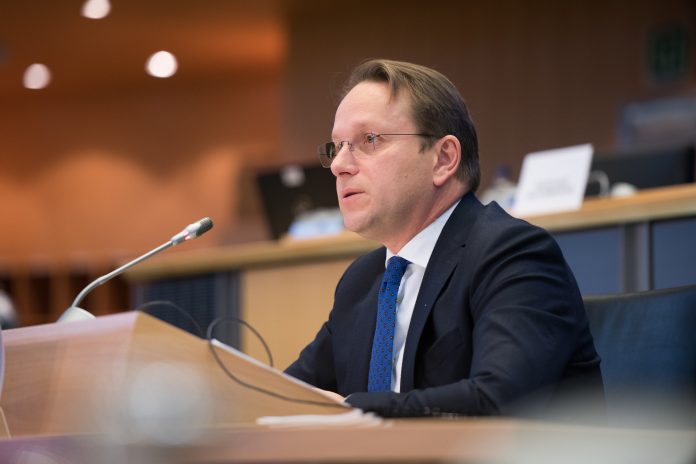Foreign Affairs MEPs questioned the Hungarian Commissioner-designate for the Neighbourhood and Enlargement portfolio on Thursday morning.
Political groups’ coordinators from the committee will meet shortly after the hearing to assess Olivér Várhelyi’s performance.
Open negotiations with North Macedonia and Albania
During his introductory speech, the Commissioner-designate outlined what he considers to be the key deliverables for the EU neighbourhood and enlargement policy for the next five years. “We need to open accession negotiations with North Macedonia and Albania. At the same time, we also need a more effective accession process and preparations that are focussed on delivering tangible results more quickly for people in their daily lives.”
Mr Várhelyi also said that it was vital for the EU to ensure that the Eastern Partnership countries implement structural reforms, while continuing to stand by the territorial sovereignty of Ukraine. He announced that the partnership with the Southern Neighbourhood would be renewed, focusing on economic development, and making full use of the current Neighbourhood, Development and International Cooperation Instrument (NDICI) and the Instrument for Pre-Accession Assistance (IPA III), which should focus on investment.
Rule of law
MEPs quizzed the Commissioner-designate on how he plans to go about integrating the Western Balkans countries more quickly, given the current challenging political context. Some voiced serious concerns over how Mr Várhelyi will be capable of promoting the rule of law and fundamental rights in the enlargement countries, given that his own country, Hungary, has passed several laws in clear breach of the EU Treaties over the last few years. Others expressed their worry over whether the Commissioner-designate’s loyalty will lie with the Hungarian government or the EU as a whole.
Based on the committees’ recommendations, the Conference of Presidents will decide on 21 November if Parliament has received sufficient information to declare the hearing process closed. If so, the plenary will vote on whether or not to elect the Commission as a whole on 27 November, in Strasbourg.

